DepEd, Y U No Teach Science to Kids?
The news that our Department of Education decided to remove the ‘Science’ subject in the first and second grades released a flurry of criticism and commentary in the past two months. Since science education is one of the main advocacies of the Filipino Freethinkers, the issue was tackled in a couple of articles on this site. To read the articles, go here or here.
Now, if there’s one thing worse than DepEd’s dropping ‘Science’ in the first and second grades, then it is their reason for doing it. In the words of Education Secretary Br. Armin Luistro, they decided to jettison science in order to “decongest the Basic Education Curriculum (BEC) and to make learning more enjoyable to young learners.” In other words, they believe that in postponing the teaching of science, they are doing the students an act of kindness.
Science, the School Bully
That many people believe science is not “child friendly” is sad on so many levels. The other levels have already been excellently discussed in the other articles on this site. I want to concentrate on this one level in particular: DepEd and the Philippine public as a whole view science as a congestion because they do not understand the first thing about it.
Given how they view the subject, I am in fact happy that DepEd dropped ‘Science’ in Grades 1 and 2. I don’t want an institution that views science as a congestion to teach it to the future generation because if they do, they will only end up alienating the kids to science.
In fact, we are better off with a public ignorant of science than a public alienated to science. Scientific ignorance can be remedied by a few years of quality education and public information. I know this because I am the product of our public elementary school system, and when I entered high school I was almost a science ignoramus. A few years of good education cancelled all my years of bad education.
Bad science teaching causes alienation toward science.
Before we move on, let me illustrate how bad my elementary education was. I had one science teacher who taught us that a monkey-eating eagle was a monkey. I also had one science teacher who was a creationist, and another who was a moon hoaxer. I also remember being scolded by another teacher for bringing encyclopedias to school and allowing my classmates to revel in them. The encyclopedias were “too advanced” for us, that teacher said. To be fair, I had good elementary teachers too. Sadly, the effect of one bad teacher requires the correction of five good ones.
Now let us proceed to the main point. There is a fundamental difference between being simply ignorant of science and being alienated to it. Good education can only be effective in minds that are not yet alienated to science. For my part, I am very thankful for my few good science teachers – who are, by the way, glowing embers in the dark world of our public education system – for keeping my sense of wonder alive throughout all those years of horrible science teaching. I believe I wouldn’t be writing this essay right now if it were not for the fact that my sense of curiousity survived all those years in a public elementary school.
The ivory tower of science: where science is exiled by bad science teaching.
However, when you have teachers believing that science is a mere body of knowledge to be handed down to the kids for their uncritical consumption, you will end up with students knowing some but understanding nothing. Worse, you might even end up with minds that acquired a resistance to learning. This is what I mean by alienation to science. If you shove scientific facts down a student’s throat without providing that fact some human dimension, that student will view science as a form of punishment. They will then be conditioned, à la Pavlov’s dog, to run for the hills whenever they smell a hint of science in the air. Sadly, such a conditioning has been going on for decades now, as indicated by the uncontrollable spread of the “nosebleed” meme. One wonders whether these people actually imagine Science as the school bully repeatedly punching them in the face until their noses bleed.
Bad Science: “I’mma make your nose bleed!”
Worse than a nation that views science class as our local equivalent of Western culture’s gym class is a public that has been so confused by bad science education that they can’t tell science from pseudoscience. A public that jumps into any bandwagon containing the words ‘quantum’, ‘ions’, ‘vibration’, ‘crystals’, and ‘pneumonoultramicroscopicsilicovolcanoconiosis’ is a public that is not only easily hoodwinked by charlatans, but is also a breeding ground for such charlatans. But can you blame people who are easily impressed by ‘biodynamic agriculture’ and ‘ultrasupermegahyper-ionic water’ given that their science teachers simply flooded them with scientific jargon most of the time? Teaching so many scientific facts without teaching the scientific method and critical thinking is cultivating a culture of unquestioning acceptance of anything that sounds esoteric. Look around you and ask whether this is not what has been going on in our science education system for some time now.
Esoteric = Science? Unfortunately, many people think so.
The First Thing About Science
Earlier I made the bold claim that some of our leaders do not know the first thing about science. But what is the first thing about science? I believe we all know and agree why science must be taught to kids as early as possible. But why can it be taught as early as possible?
Well, the first thing about science is that it is founded on a set of values. In effect, science education is values education. A person cannot understand science without imbibing at least most of its virtues.
Science is a very human activity.
Science is difficult, yes. Science does not end in being amazed and awed, indeed. Science is not all about the happy-happy-joy-joy, true. That is why when science is taught, you do not simply teach it as a body of knowledge and not even as a body of theories. When science is taught, it must be taught as a human activity. And like all human activities worth pursuing, it requires a certain set of attitudes.
Among the virtues required by science are curiosity, attentiveness to detail, ambition, and intellectual honesty, all of which can be taught to kids as early as possible. In fact, for many kids these virtues need not be taught but only encouraged and reinforced.
Children are so naturally curious about the physical world that one should be impressed at how good our educational system is in killing their sense of wonder. Science can be a very difficult subject. This is why wonder and awe are necessities of science education and not merely ornaments or embellishes. For a kid whose curiosity has survived years of bad education, the uphill journey to scientific understanding is not only worthwhile, it is enjoyable for its own sake. On the other hand, without an eagerness to learn new things about the world, the rigors of science will be corporal punishment to a student.
Musing on the subtleties of bathroom hydrodynamics.
Similarly, children are naturally ambitious. Sadly, years of watching television and cultural conditioning skews this sense of ambition by a great deal. (Kid A who wants to be an artista was cheered on by her relatives while Kid B who wants to be an astronaut was pitied for being an odd little girl who’s probably a tomboy.) And it doesn’t help that science teachers do not impart a hunger for excellence, either. In most science classes, grades are the ultimate reason for listening to the teacher. Forget about discovering the cure for AIDS or solving the efficiency problem of solar energy; as long as you pass the subject or got a 90+, you’re doing fine. What many people fail to see is that ambition is what propels cutting-edge science. No matter how many practical technologies were spawned as byproducts of sending space probes to distant worlds, no one can deny that humans shoot rockets to the sky primarily to push the boundaries of what we can do.
Being a difficult subject, the rigors of science also build a character of discipline and patience. After all, science is all about looking at and dealing with the world in an orderly manner. The discipline of mind that science (and mathematics) teaches is something that is rarely matched by other subjects. It might sound like a stretch, but teaching a kid to keep her room in order and teaching her that there is order in the universe have a lot in common. I can’t think of any parent who does not want her child to imbibe the sense of orderliness that science teaches best.
Speaking of discipline, science also requires another kind of mental regularity in that it demands constant and consistent use of critical thinking and logical reasoning. From a very early age, children can show signs of these in the way they value evidence and logical consistency. For example, some kids can start calling bullshit on tall tales even while very young. However, science cannot thrive on mere flashes of critical thought. For a child to have a scientific mind, that child must be taught to consistently demand evidence for claims.
Demand for evidence whenever appropriate. (It’s always appropriate.)
Finally, being a human activity, science requires a healthy mix of cooperation and competition. In teaching science, one must teach both group learning and self-learning.
Science Education as Values Education
The whole point of the preceding discussion is to show that science is not so far from GMRC (Good Manners and Right Conduct) after all. And if we can and should teach GMRC from a very early age, the same must hold true for science.
After all, the contents of science are secondary to its methods and values, because the facts and theories can change but the values don’t. Concentrating on the contents of science is what causes our public’s alienation with science. Hence, the loss of two years of content-centered science education is, as Garrick Bercero also argued, not such a big loss. In fact, I even view it as a gain. A lot of ignorant but receptive minds is better than a host of minds resistant to scientific learning.
I believe that science subjects from the first grade to the sixth should be very light on their content and should concentrate on the values, especially on the sense of wonder and ambition. Grade school science should also emphasize activity (observing, experimentation, questioning, self-learning) and not knowledge.
As I have said many times, science is very hard to master. But with a sense that in doing science you are part of a human enterprise that seeks to solve the Sphinx’s riddle of the universe, all the difficulties of science becomes part of the fun of it. A proper science education should breed kids who, when faced with a difficult scientific problem, say “Bring it on!”
Hence, before we demand more hours of science education, we must first demand that our science teachers understand the first thing about science.
Science will go nowhere without ambition.
Photo credits:
- knowyourmeme.com
- nytimes.com
- christianhumanist.com
- ihatebullies.com
- rickygrice.blogspot
- blogs.discoverymagazine.com



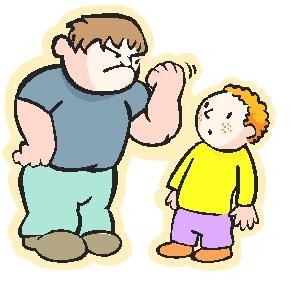
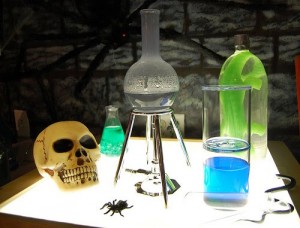
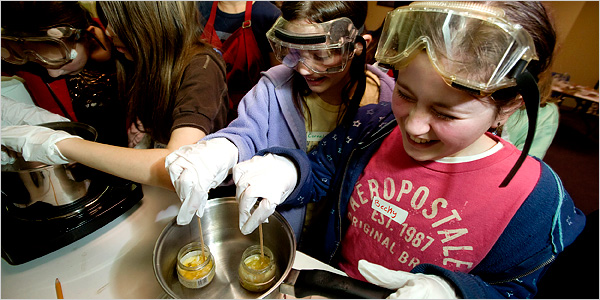
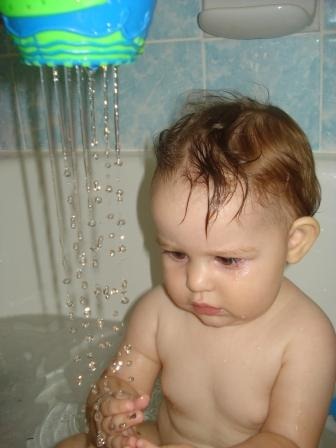
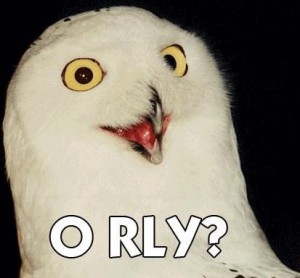


LOLed at the story of the kid being cheered by relatives upon wanting to be a celebrity.
In our family, being urged to join showbusiness is an insult and is interpreted as "You can't finish college so don't even try." It's not a bad thing since it's always taken as a challenge to get better grades.